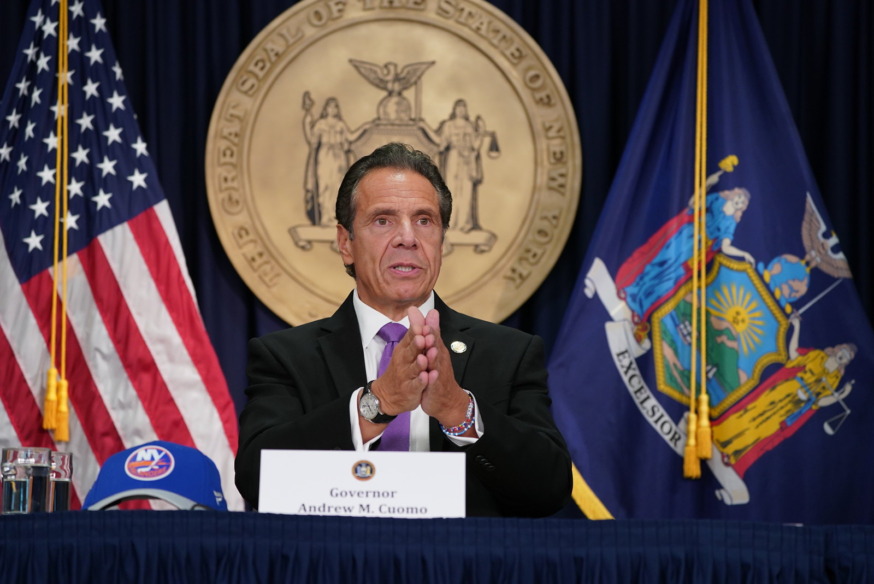
Governor Andrew Cuomo (Flickr/ Governor Andrew Cuomo’s Office)
Sept. 9, 2020 By Allie Griffin
Governor Andrew Cuomo said New York City must create an enforcement mechanism before indoor dining can make a return.
The city must create a plan to enforce and inspect restaurants for COVID-19 compliance before indoor dining can reopen in the Big Apple, he said Tuesday.
“If we have the enforcement mechanism in place, then we can talk about opening restaurants,” he said.
The city needs to ramp up its role since the state doesn’t have the resources to enforce the COVID-19 rules for eateries if indoor dining were to open, Cuomo said.
The state task force — made up of the state police and State Liquor Authority (SLA) — charged with enforcement has already maxed out its capacity, he said. It couldn’t enforce another 10,000 establishments added by allowing indoor dining in the city.
“If you now increase indoor dining, you are going to have to have a compliance and enforcement function,” Cuomo told reporters. “If you go to indoor dining, you’re roughly doubling the number of places that you’re going to have to monitor.”
The governor claimed that compliance in the Big Apple is worse than compliance in other regions of the state, such as Long Island, where indoor dining has been open since June.
He added that clusters of COVID-19 cases popped up when he reopened indoor seating at restaurants upstate.
“It would be negligent and reckless to open indoor dining knowing that you have issues in upstate New York, knowing that compliance is going to be a problem and knowing that you don’t have an enforcement mechanism,” Cuomo said.
The enforcement could come from the NYPD or local health inspectors, he said.
Cuomo acknowledged that New York City restaurant owners are struggling to keep their businesses alive as indoor dining has been shuttered for roughly six months.
“I am very aware of the economic pain that restaurants are dealing with,” he said. “It’s bad for the restaurant owner. It’s bad for the staff, the chef, the waiters, the entire team that works there.”
However, he said when bars reopened in the city — albeit outdoor only — there were major issues with people gathering and ignoring social distancing and mask wearing requirements. He said he is worried the same thing would happen if indoor dining reopens.
“We opened bars and it turned out to be a nightmare,” Cuomo said. “There were many violations, and there was very little ability to police the violations, to enforce the compliance.”
The governor said local officials failed to enforce the strict coronavirus safety regulations when bars reopened.
“I beseeched the local governments to help and they did not,” Cuomo said.
This time around, he wants the city to have an enforcement plan already in place before indoor dining can return to the city.
